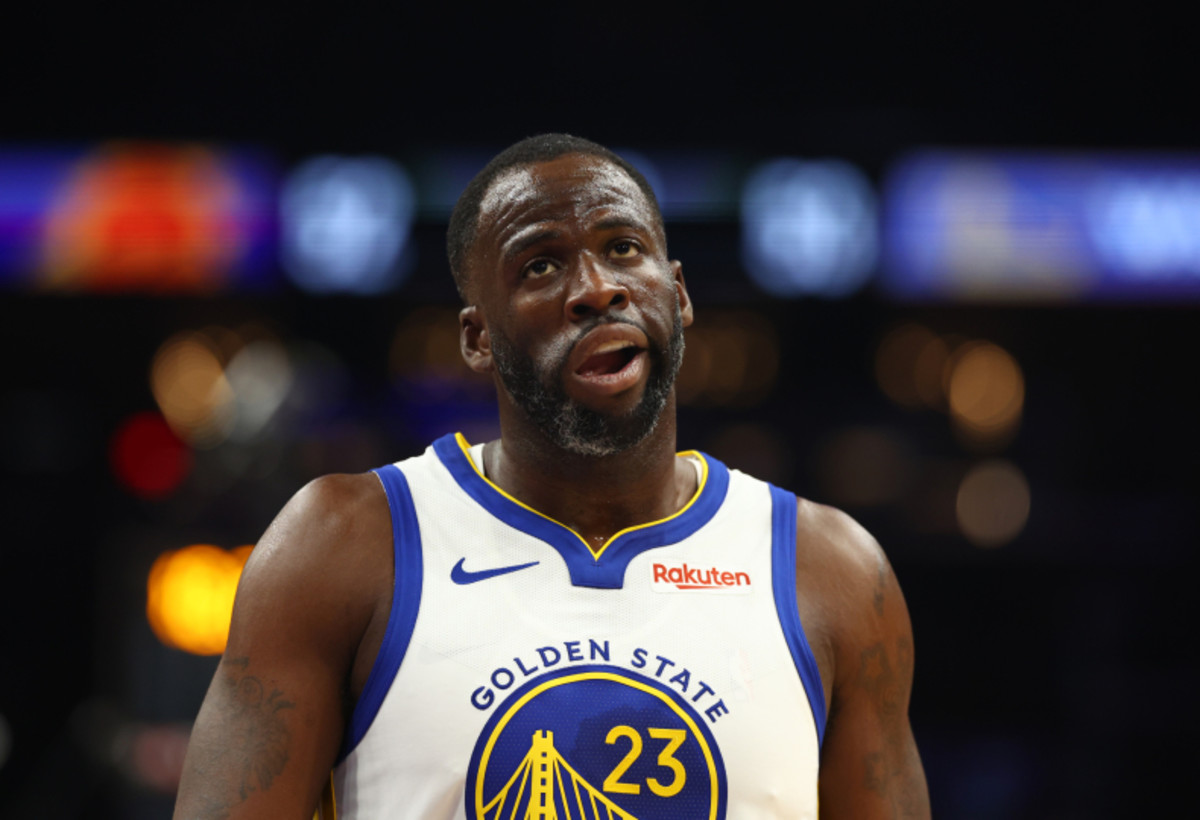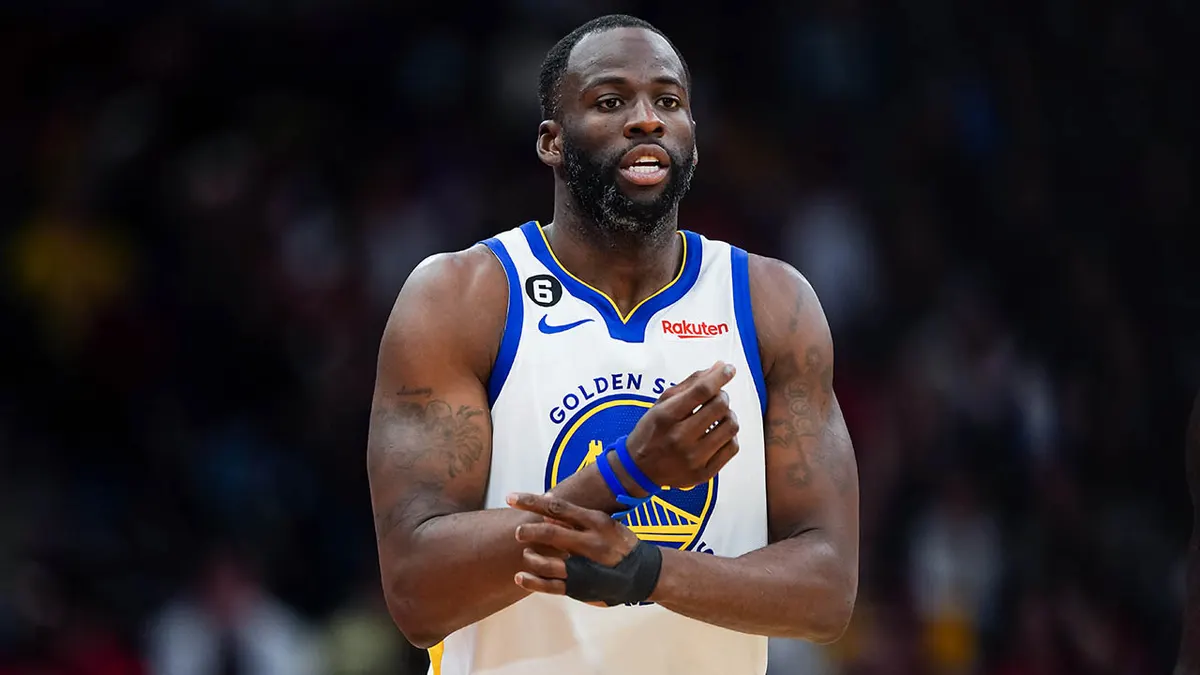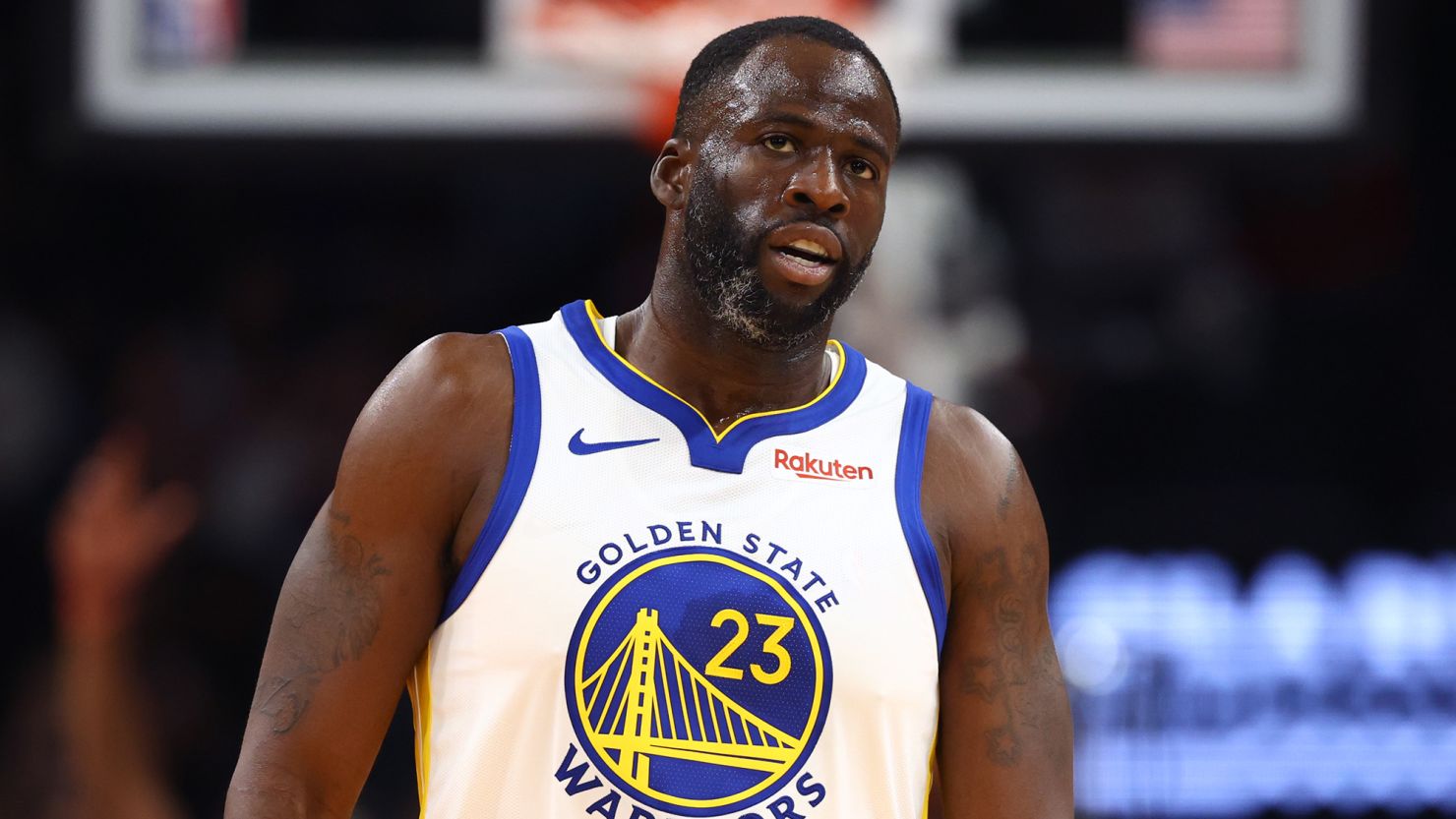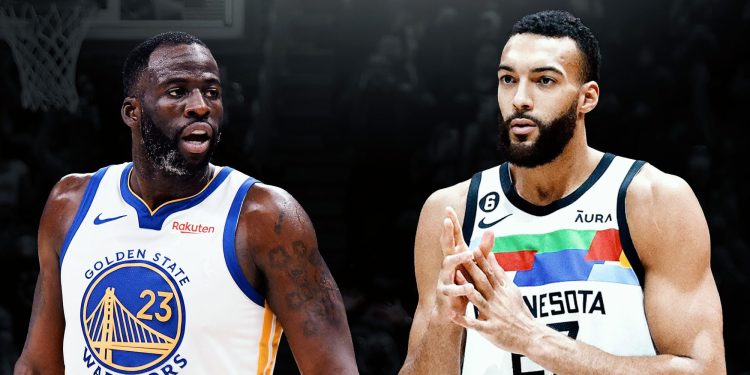In the intense world of NBA playoffs, few rivalries have captured the attention as much as the ongoing feud between Golden State Warriors forward Draymond Green and Minnesota Timberwolves center Rudy Gobert. Known for their prowess on the court, particularly in defense, both players have repeatedly clashed over who holds the title of the league’s best defender.
This season, their rivalry escalated during a game when Draymond Green didn’t shy away from physical confrontation, famously putting Gobert in a chokehold—an image that has since dominated NBA discussions on social media platforms.

Draymond Green’s Misfire on Wolves’ Playoff Chances
Following a critical Game 5 where the Timberwolves faced a daunting deficit against the Denver Nuggets, Draymond Green, serving as a commentator, made a bold statement on TNT. “When you lose the belief… it’s over. They don’t believe they can win anymore, which means this series is over,” he declared, doubting the Wolves’ ability to recover in the series.
This remark came after Nikola Jokic’s stellar performance that seemed to seal the fate of the Timberwolves.
However, the narrative took an unexpected turn as the Timberwolves rallied to win Games 6 and 7, not only proving Draymond Green wrong but also advancing to the Western Conference Finals.
This turn of events led to a wave of reactions from fans and analysts alike, who didn’t hesitate to point out Draymond Green’s misjudgment.
The Fallout of Game 5 Comments
Draymond Green’s commentary went beyond game analysis, weaving personal jibes aimed at Gobert, reflecting their strained relationship. Mimicking Gobert’s accent, Green remarked, “The big Frenchman is sitting on that podium, speaking his native language, ‘Oui, oui, oui need to do this.’
You, you, you need to get a stop,” which was not only seen as a critique of Gobert’s game but also as a personal dig. These comments, which might have seemed humorous at the moment, appeared less so when the Timberwolves mounted their comeback.
NBA agent Nate Jones commented on the situation via X, highlighting the necessity for objectivity in sports commentary. “This looks even more embarrassing now. You have to maintain an ounce of objectivity if you’re going to do this job,” Jones stated, emphasizing that Draymond Green’s personal biases seemed to cloud his commentary.

A Concession and Recognition
Despite his initial harsh stance, Draymond Green appeared to soften his position in his latest podcast episode. He acknowledged Gobert’s significant contribution to the Timberwolves’ victories, stating, “Rudy Gobert came in and played big basketball but that was after getting bullied,” giving Gobert his due while still hinting at earlier struggles in the series.

The Bigger Picture
The saga between Draymond Green and Rudy Gobert reflects a larger narrative of rivalry and redemption in the NBA. It underscores the unpredictability of the playoffs where a single game can shift the momentum and alter the course of the series.
As the Timberwolves prepare for their next challenge in the Western Conference Finals, the spotlight will undoubtedly remain on their performance, as well as on the words and actions of high-profile players like Draymond Green, whose roles as both players and commentators shape the public and media narratives surrounding the game.










